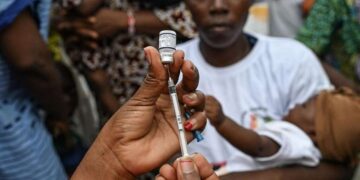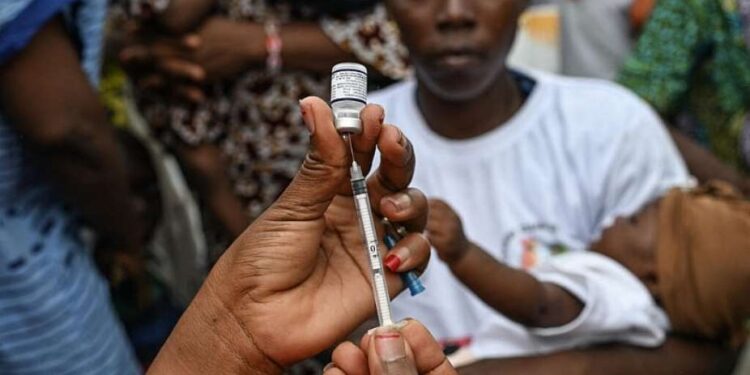By John Ikani
Côte d’Ivoire has become the first country in Africa to officially administer the R21/Matrix-M vaccine.
The landmark campaign aims to protect a quarter-million children under two across 16 regions in the West African nation, where malaria tragically claims four lives daily, primarily amongst young children.
Local resident Achiaou Aremu expressed her relief to AFP news agency in Abidjan, stating, “This disease is devastating. It’s crucial to get my grandchildren vaccinated soon. With this protection, they’ll be much less likely to contract malaria.”
This rollout marks “the dawn of a new era” in malaria control, according to Professor Adrian Hill, director of Oxford University’s Jenner Institute – a key player in the vaccine’s development alongside the Serum Institute of India (SII).
The good news: over 25 million doses are already available, priced below $4 each.
“Our hope is to see the R21 vaccine readily accessible to all African countries that wish to utilize it,” Professor Hill declared in a statement.
R21 becomes the second malaria vaccine endorsed by the World Health Organization (WHO), joining the existing RTS, S/Mosquirix vaccine developed by GlaxoSmithKline (GSK).
Over two million children in Ghana, Kenya, and Malawi have already received the RTS,S vaccine through a pilot program launched in 2019.
In addition, Cameroon became the first country to incorporate it into their routine childhood immunizations in January 2024. Since then, Burkina Faso, Benin, and Sierra Leone have followed suit.
A key advantage of R21 lies in its dosing schedule. Unlike the four-dose requirement for RTS,S, R21 offers significant protection (over 75%) against severe malaria and death in the first year with just three doses. A booster shot further extends this protection for at least another year.
The Serum Institute of India plans to manufacture a staggering 100 million R21 doses annually, dwarfing GSK’s projected 15 million doses of RTS,S.
Both vaccines are being rolled out across Africa with the crucial support of Gavi, the global vaccine alliance dedicated to ensuring access for less fortunate countries.
Gavi’s ambitious goal for 2024 is to assist 15 African nations in introducing malaria vaccines, potentially safeguarding an estimated 6.6 million children in the coming two years.
The vast majority (over 94%) of the world’s 249 million annual malaria cases and 608,000 deaths occur in Africa, according to the WHO. This mosquito-borne disease disproportionately impacts children under five and pregnant women.
Though vaccines won’t eradicate malaria transmission, public health experts emphasize the continued importance of mosquito nets, insecticides, and proper hygiene practices as crucial tools in the fight against this deadly disease.




































